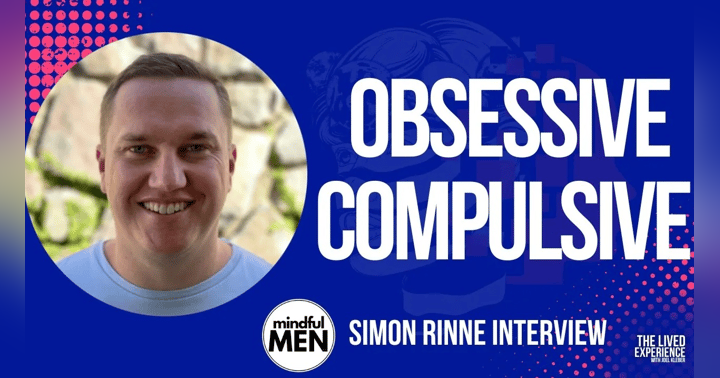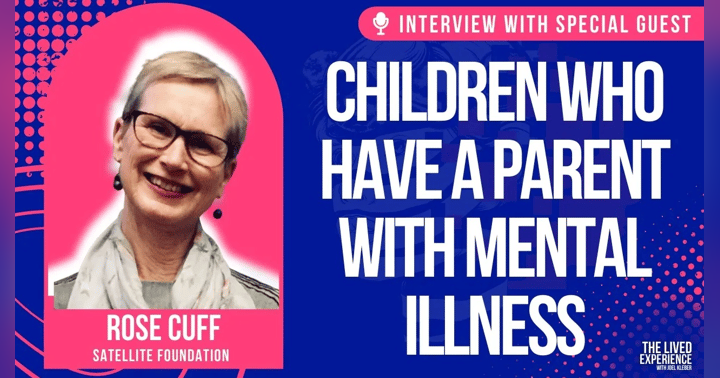Interview with Tim Beanland about managing a business whilst having Bipolar Disorder

Interview with Tim Beanland about managing a business whilst having Bipolar Disorder
Tim Beanland is a marketing and podcasting nerd who is interested in consumer behavior and what motivates individuals to act. Tim is the host of the Beantalking with Peak Performers Podcast, on which he has interviewed peak performers like Jim Penman, Edward Zia, and James Whittaker.
He wanted to demonstrate to individuals beginning podcasts that they didn't need huge resources or every piece of expensive technology to make their voice heard. Tim is not only a Videographer, he is a Video Marketer with a Degree in Marketing from Monash University, but he has also always had a passion for video and has been fascinated by what gets attention and how you can use that attention to get the desired result for you and your business.
His approach to podcasting is that it fits in incredibly well with an overall content marketing strategy for any business. Tim has also learned a lot from his experience with Manic Depression, using the lessons he has learned from his battles with mental health to motivate him to keep going, pushing forward, and making the most of every single day.
JOEL: Is there anything in the last year that you know firsthand that is out there regarding making a significant impact?
TIM: The biggest thing for me has been finding a support group. Specifically, it's a bipolar support group. Bipolar life is the name a friend of mine said that “Joey come in” and that for me was fantastic because you've got brilliant resources like Beyond Blue and Black Dog and they have the bigger institutions, doing good activations, really good information, but I found that something this year was good finding like-minded people.
And it was great to even be able to talk about your show. It is lived experience, and I'd go to a few meetings that hopefully you got a few listeners from that. But that was something that I think has been massive for me, and even Rick remaining that two friends that I know who have just been diagnosed, I think that as an example on a platform was cool because I didn't find anything.
When I first got diagnosed of all, it was really cool to go and talk to people with similar lived experiences. So that was something that I've found interesting this year that I've personally found.
What more can be done to address this issue?
I think what we've done for depression and anxiety has been fantastic. The communication around that has been great. But as we've talked about it a couple of times—and you've probably said several times on posts and in this podcast as well—that that same level of communication around schizophrenia, bipolar, every any other disorder just isn't there.
And sometimes to the point, explaining the difference between bipolar and depression or bipolar depression or normal depression, it would be fantastic to just say, “Hey, I have bipolar”, and then they'd be that surface-level understanding that would be great. But I know, it's been it's been a massive effort for that conversation around depression and anxiety to get to where it is.
So, is it the same effort required for every other mental illness? I believe there should be. But that's a very interesting conversation.
How do you manage your mental health while running your business?
Well, I walk every day. I think the interesting thing was COVID. And being told that you can have our walk, more people started going out and doing their walk.
But it's amazing how beneficial that is, so overlooking the exercise component can be very dangerous. The other thing that helps as well as I really need to keep up communication with people. So, for me, that's the biggest thing.
As soon as I start letting a few messages slip, I don't get back to people—there must be a little bit of leeway there. But for me, it's at least keeping in communication with a core group of people, even my dad, and my family. And then, it's interesting, your diet as well.
When I'm in a low mood, it's very easy to drive to McDonald's. But I think the biggest thing really is the exercise and then also continuing to be productive and communicate as well.
As soon as I stop working and I let one project slip and another project slip, that's when things start to escalate. So even if it's a matter of, I don't feel like doing something today, figure out like 10% or 20% on the thing that you can do.
And sometimes it's also the schedule on the sleep that the good thing about being self-employed from a mental health perspective is, the boss is always going to say “yes to a sick day”. Which is a good and bad thing, but also, in a sense, I can have my own schedule, so if I'd need to stay a little bit longer in bed till 10 or 11 I'll do that but it also will mean I'll work until seven or eight or nine—even last night I was up until two—but then today, I was able to take it a little bit easy. The self-employed schedule works well for me—that could be another thing is having a schedule that works for you.
So, I guess to summarize, those are those things that will be exercise, eating, busy doing work and then having a schedule that works for you.
What are your thoughts about not being able to get help when it's needed?
This is the thing where it's “you can really lead a horse to water, but you can't make it drink”.
I've had so many situations where I should have made an appointment with my doctor, and if I had done that it would have saved three months of being in a depressed state. But in terms of practically getting someone's support, therefore, it's important to have that close group of people that know your diagnosis and know your little triggers and behavior sets that happens.
So, I'm in a fortunate position now that if I stopped posting on social media or if I maybe miss some phone calls and don't respond in a couple of weeks, I've got a few people that message me and go, what's going on.
And that is as a symptom, and every time I got better, again, I would tell specific people, this is what happen—if I'm not in a good state. And it's interesting, I got a message from someone today who same thing that like I haven't seen you post anything what's going on.
So that would be the biggest thing to get the help when you need it is build that support network when you're healthy. Because then it's going to be the people that you tell they're going to notice when you need the support the most. However, you feel comfortable doing that. That's probably my advice on that.
What needs to be next after awareness?
The time for awareness is over, but action should be here. I think the thing now is awareness, when you bring it up with people they can comprehend and take that on board. But then, what's the conversation?
What does that conversation look like? So, I tell someone, I've got bipolar, what are the next normal conversation about that look like? And should everyone have a level of understanding —well, if I know may the mind is not in a good headspace. What are some things that I can recommend to them?
So, I guess, the awareness is there, but now, it's like can we understand what we can do to help? Even if it's just like, “hey, you talking to a doctor?”. I think that's for me, that would be the next thing. I always say it, because I've been so fortunate, we have a support network, the next thing is building those support networks or teaching what they should do to give people more awareness.
There's awareness in general of the illness, but what do you tell him that the person with a mental illness of how can we communicate this to our friends?
What can we tell them to give them strategies for us? So, put the burden a little bit onto me and other people.
How can we educate out the people around me about the condition we have? I think that's something is as well.
What are your thoughts on the next couple of years for coming out of lockdown?
It's going to be interesting. And I think the thing that I'm fascinated about is the acceptance of hybrid work, which I think is fantastic. It's made to be able to work from home two days a week but is there going to be that same awareness of being able to physically see if someone's doing okay.
Whereas they might not show up to work in the office, two days, and then you go, “Oh, hang on, is that person okay?”, so it'd be interesting to have some thoughts around, what does it look like to be mentally okay, at home as well, where it's really easy to just go to the next room, close the blinds, and going through a depressive episode, especially for me. It's paid for my experience, it's sort of what was happening last three weeks or so for a month.
That would interesting, as we're coming into that as the more expected norm. I think people are pretty, because the last two years has impacted a lot of people with their mental health. I think it helped the conversation.
Go along a little bit more. So, I think there's also been some positives that come from it too, but I don't know what you think is should be kept an eye on yourself.
What are your plans for next year?
This year has been awesome with the business I've kind of grown consistent clients and it's been fun, just being able to build something that I enjoy doing and having a schedule that fits around my lifestyle and my health, I'm really going to focus on because the biggest thing this year that's been great, especially from a mental health perspective, is outsourcing certain tasks.
So, I started like most businesses or small businesses because you're good at a skill and you enjoy something but now, I've dipped my toe into outsourcing some of the tasks and that's been fantastic training people to do.
What I'm doing in the back end, and I think my biggest thing for next year is to really kind of get off the tools as much as I can because that's the thing it also helps with my health too because sometimes if I'm up at 1am-2am editing something I should be sleeping and looking after my health.
So, if I can get more people with the outsourcing part of part of the business that will be fun.
I enjoy teaching. I enjoy training so that'd be good. And then again, my biggest goal this year for health was to go through the year without a sustained period of depression. And I got through winter, which is usually a period that I would slip down into, without any kind of dips, which was fantastic.
There were probably about three weeks, four weeks where I did fall into a bit of a mental health. But I'd say that I did that goal this year.
So, for next year, if I can do everything that I need to keep healthy for the entire 12 months, that would be successful.









